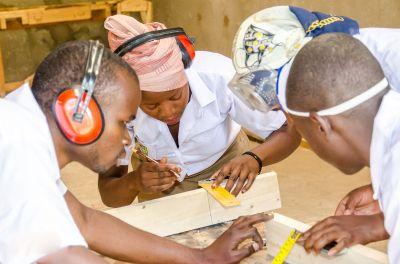The German dual TVET system with its strong focus on practical training in the process of work is considered a key factor for the country’s economic stability. In Germany, dual TVET has a long tradition that started in the middle ages with apprentices on a tramp, who were instructed from various masters. Over time, training and assessment regulations developed by trade associations and the creation of vocational schools some 150 years ago contributed to the development of the current dual TVET system. In 1969, the Federal Vocational Training Act (Berufsbildungsgesetz) laid the foundations for the German dual TVET system that is, however amended and modernized at several times, still in place today.
Obviously, such a complex system can not be simply transferred elsewhere, but must be adapted to the relevant environment. The German Ministry of Education and Research, together with stakeholder institutions, has identified key success factors for dual TVET:
- Cooperation between social partners, private sector organisations, the government and public institutions
- Practical training in the process of working
- Occupational Standards
- Qualified TVET personnel
We customize our services according to your needs. Possible subjects are outlined below:
Needs analysis and strategic advice:
Whether at national or regional level - we analyse the needs of your TVET system and support you in developing strategic concepts as a basis for further interventions. You may call on our international expertise and experts when you are interested in TVET financing mechanisms, legal framework conditions or the cooperation between public and private sector.
Process moderation:
Technical vocational training and education calls for a sound collaboration of various stakeholders. We support you in designing these collaboration processes by clarifying roles and responsibilities as well as the set-up of supporting communication processes. Our experts are highly experienced the facilitation of large multi-stakeholder events as well as in the design and implementation of long-term dialogue processes.









